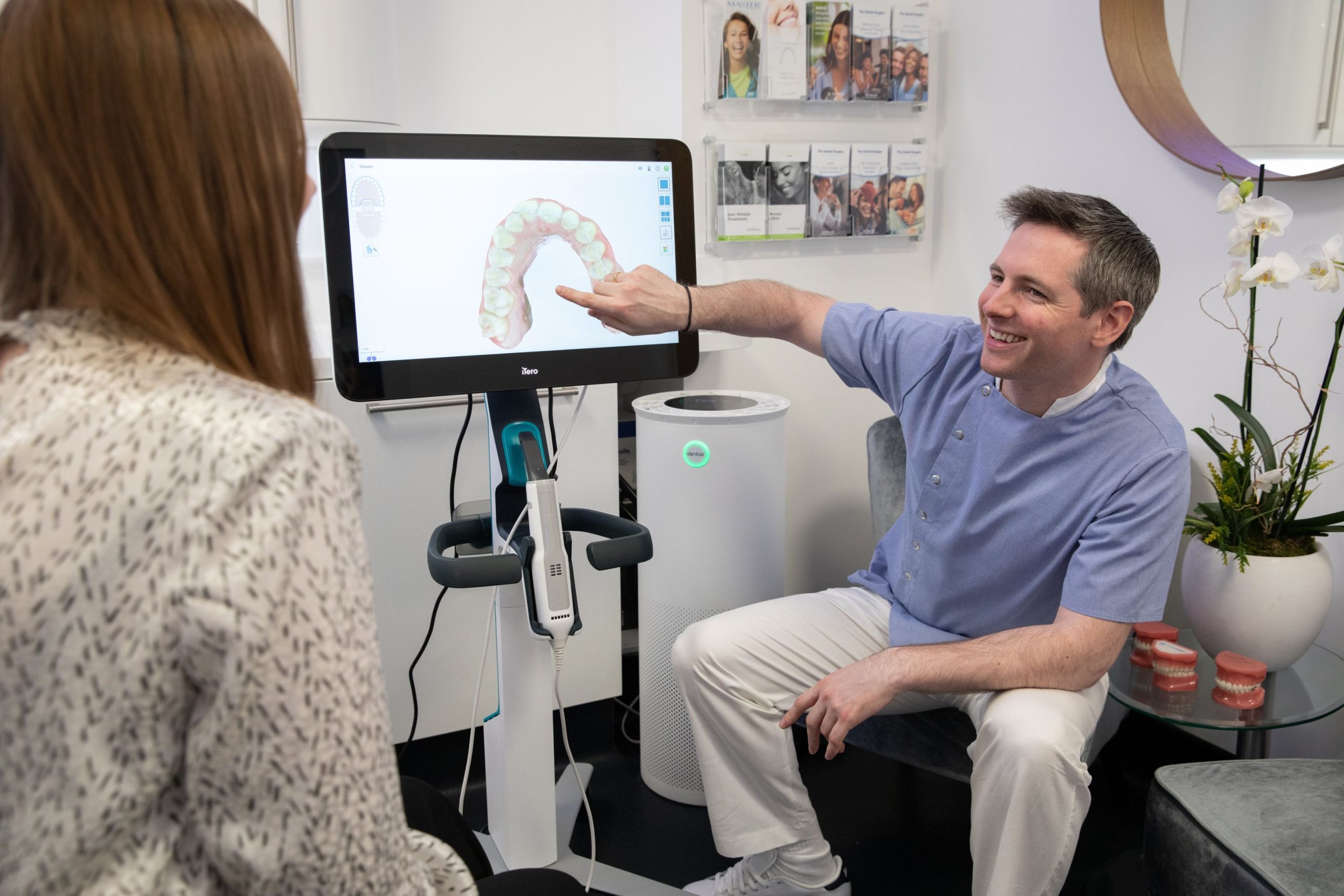-
Categorised as:
- Periodontics
- Dental Hygiene
- General Dentistry
Will My Gums Stop Bleeding?
Have you got bleeding gums? We suspect your gums do bleed when you brush and floss because you are reading this… Don’t worry!
Bleeding gums probably won’t magically heal themselves and stop bleeding, but at the same time, there is a good chance that any underlying issues can be easily resolved.
In this blog post, we’ll look at why gums bleed, how common they are, what the stages of gum disease are and what your next steps should be.
Gums bleed because, over time, most people struggle to maintain perfect oral hygiene.
Bacteria accumulates around plaque that isn’t removed and this, in turn, leads to redness of the gums, swelling and bleeding when brushed or flossed.
The most common form of bleeding gums is gingivitis, a condition you might well have heard of while being slightly unsure exactly what it is.
Unlike some other causes of bleeding gums, mostly no long-term damage is being done here. A thorough deep clean of the teeth and gums by one of our dental hygienists will remove the plaque and calcified deposits causing gingivitis and, if good oral hygiene is maintained from that point onwards, it is less likely to return.
Bleeding gums should be a thing of the past.
Will Bleeding Gums Stop Simply by Brushing?
You may wonder whether gingivitis can be tackled at home. If it is simply a case of plaque being removed can this be achieved by brushing, flossing and mouthwash use? Certainly, you can remove some plaque, however, any plaque that has hardened (tartar) or is particularly difficult to reach around the gum line is likely to require a professional clean from a hygienist.
There are other reasons too for getting bleeding gums properly checked out. Having some level of periodontal (gum) disease is incredibly common, the latest dental health survey found that 54% of UK adults had at least mild levels of the condition.
In most cases, bleeding gums and minor gum disease will be a simple case of gingivitis.
Removing the plaque that is causing the problem is standard work for any dental hygienist. After the treatment, the gums should stop bleeding and any associated problems such as bad breath (halitosis) will also have been minimised. If left untreated, gingivitis can become the more serious periodontitis.
What About Periodontitis?
Periodontitis is more serious because real damage is being done: bone and gum are being eroded which can lead to teeth becoming loose and the potential for tooth loss. Periodontitis has also been linked with a range of seemingly unrelated health issues such as strokes, heart attacks and lung disease. It has also been found that around 90% of people with periodontitis are at risk of diabetes.
That is why, if only to have your mouth assessed and periodontitis ruled out, it is always worth getting bleeding gums checked out. Advanced Periodontitis is treated by skilled periodontists – a dentist specialising in the prevention, diagnosis and treatment of periodontal disease.
To remove all plaque from tooth and root surfaces typically requires a few appointments with a follow-up appointment a few weeks later to check that the gum inflammation has receded and that all plaque has been removed; in a small number of cases (around 10%) further work is required at this stage to attack any remaining deposits.
After Your Bleeding Gums Have Been Treated, How Do You Avoid A Recurrence?
Improved dental hygiene is obviously the major step, you will be shown how to brush effectively and also be given advice on anything more specific to your teeth. Other factors play a part too. The nature of your diet has an influence on your susceptibility to these conditions, a topic we explored in our post on foods to avoid to maintain healthy gums.
Smoking and stress also negatively impact dental health – to use general terms, a healthy balanced diet and healthy lifestyle are as good for dental hygiene as it is for your overall health.
We all lapse though, we’re all human – that is where check-ups come in. Your dental hygienist, dentist or specialist periodontist can advise on how often you should book a check-up, whether it is as regular as every three to six months or whether less regular appointments might suffice.
To loop back to the start, yes your gums will stop bleeding if you pick the phone up and book an appointment, you will also then have the reassurance of knowing that any issues have been dealt with. You will have a good platform for ensuring the sight of blood in the sink is a thing of the past.
Do you have a specific question?
Get in touch with us today.



